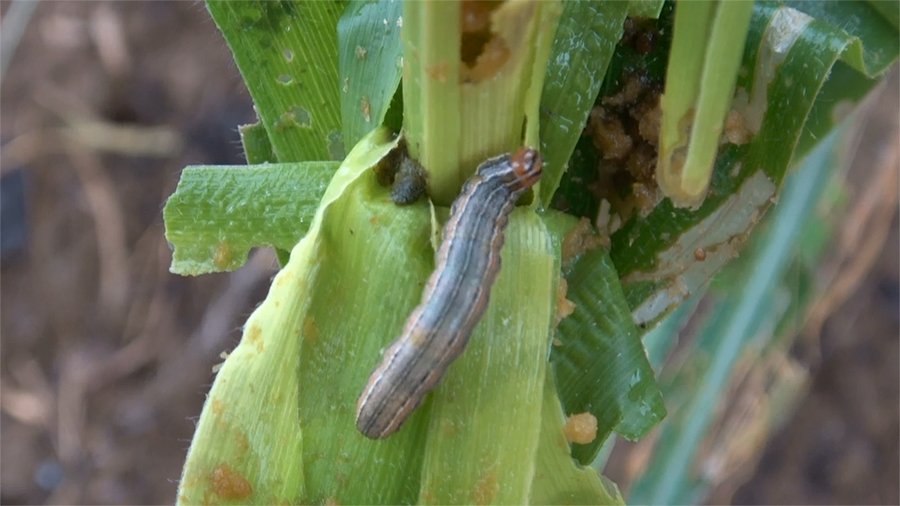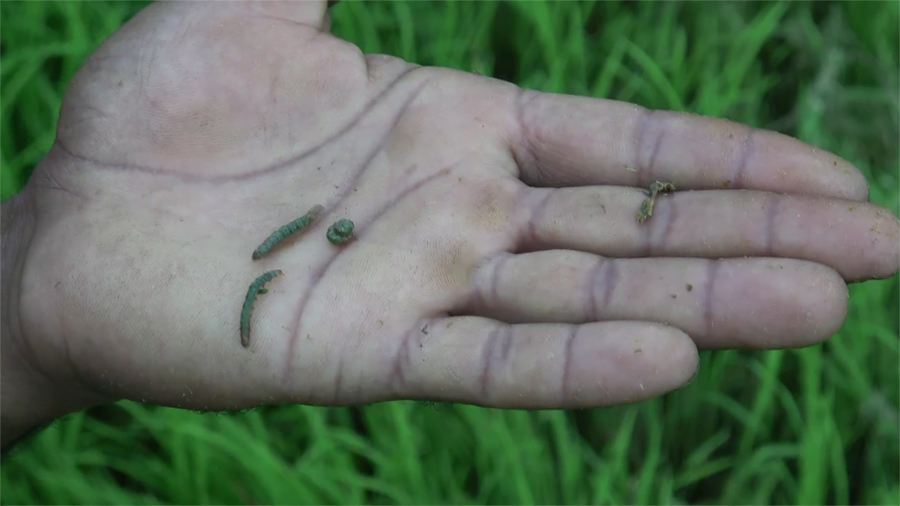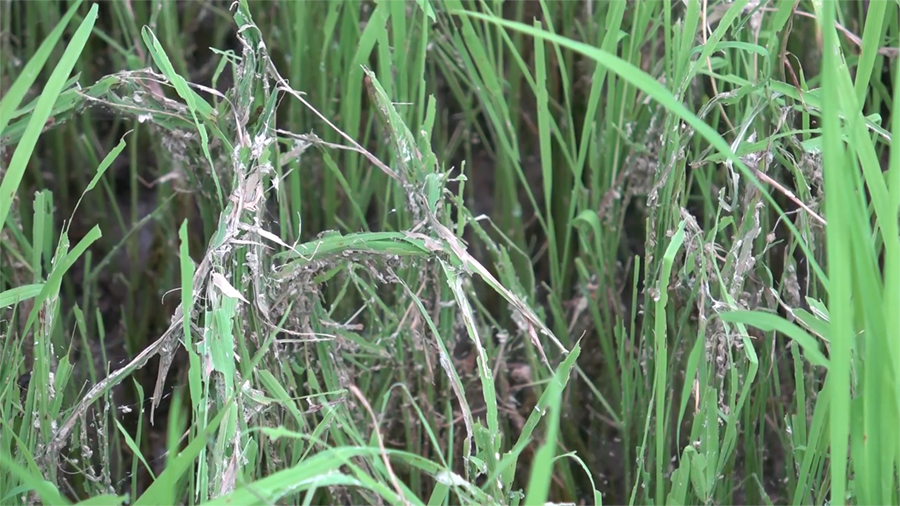
Armyworm infestation in agricultural fields is not a new phenomenon amongst farmers in the country. Although BBS has yet to obtain the full-scale report on the outbreak, there are reports of damages of maize plants in Samtse, Pema Gatshel, Samdrup Jongkhar and Trashigang. However, in an unusual event in Tsirang, paddy farmers at Maenchhana Chiwog of Kilkhorthang Gewog are seeing the infestation in paddy fields.

The infestation is still active even after repeatedly spraying a pesticide provided by the gewog agriculture extension office, according to the farmers.
The pest has affected paddy saplings of ten out of 18 paddy growers in Maenchhana Chiwog in Tsirang. The farmers said that this is the first instance of armyworms attacking paddy in the chiwog. The pest initially infested a paddy seedling bed of a farmer last week before spreading to other fields. Farmers are spraying pesticide and throwing out the worms. They said the infestation would delay paddy transplantation and affect production this year.
Aga Nidhi Acharya, a farmer at Maenchhana Chiwog said, “Our grandparents have not experienced the pest damaging paddy saplings. The pest used to attack maize plants but it is usually not that severe. This time we are totally upset with the pest destroying our paddy saplings.
Mokti Nath Khatiwara, another farmer in the chiwog said, “I earn my living out of farming. I am worried this year because I cannot do other works for household income since I am getting old.”
Jiwan Sharma, who is also a paddy farmer in the chiwog said that he is scared that his paddy saplings could also become affected anytime soon.

Meanwhile in Trashigang, although the district agriculture office did not receive reports so far, damages were observed in maize fields and vegetable gardens in some gewogs.
Ugyen Zangmo, a farmer at Darung Chiwog in Lumang Gewog said, “The worms damaged maize plants last year as well but they regrew again but this year I don’t think that is possible because all the pants are already damaged. This side of the field is fine but the maize plants at the lower part have been completely damaged.”
Chezom, another farmer in the chiwog said, “I did not report to agriculture extension officer because I am scared that I might commit a sin if we kill the insect even if they would come and help us.”
In Samtse, more than 20 acres of maize fields in Aringgang_Midzomsa Chiwog of Dophuchen Gewog have been damaged. The infestation has impacted approximately 80 households of the chiwog. Although Dophuchen Gewog is the most affected, minor cases have been observed in all other gewogs according to agriculture officials.
Phul Maya Rai, a resident of Khandothang village said, “We have been struggling with worm infestations damaging our crops for about three years. While the situation wasn’t very severe last year, this year the worms have caused significant damage to our maize. It’s not just the maize that is affected; these worms also attack our vegetables, including spinach and chilies.
The worms have also affected maize plants in Pema Gatshel.
Dechen Wangdi, a farmer of Nangkor in Shumar Gewog said, “We used to rely on maize as a staple when there are rice shortage in the market but this year I don’t think we will have enough plants to even produce seeds for next year.”
In most districts, agriculture officials have distributed pesticides and advocated on measures to check the outbreak.
Meanwhile, in Tsirang, the gewog agriculture extension supervisor said that the infestation in paddy saplings could be due to climate change. The official said there is no preventive measure as such other than spraying pesticide.
According to a report published by the National Plant Protection Centre, such outbreaks usually occur during periods of drought followed by heavy rain. Apart from spraying chemicals, the centre also mentioned some effective non-chemical management to prevent the pest. The methods include flooding the seedbed to defend against swarming worms as it drowns them. It is also advisable to plough a channel around the field and fill it with water especially when the worms are moving towards one field from adjacent fields. The other methods include cutting grasses in the bordering fields and refraining from killing natural enemies of armyworms such as wasps and spiders.
Pema Tshewang, Tsirang
Additional reporting by Thinley Dorji, Passang Dorji and Sonam Darjay
Edited by Kipchu









